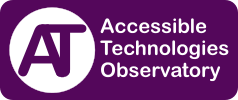Usability is the ease of use and learnability of a human-made object. The object of use can be a software application, website, book, tool, machine, process, or anything a human interacts with. A usability study may be conducted as a primary job function by a usability analyst or as a secondary job function by designers, technical writers, marketing personnel, and others. It is widely used in consumer electronics, communication, and knowledge transfer objects (such as a cookbook, a document or online help) and mechanical objects such as a door handle or a hammer.
Developing a Usable Android Launcher to Help Elderly People in Indonesia Use Smartphones
Technologies have become an inseparable part of our life. The benefits of technology have impacted every aspect of our daily life: from education, entertainment, transportation to communication. It has become very difficult for most people to go through the day without technology such as computers and cell phones. One example of technology that is very widely used by all kinds of people is smartphones. The number of smartphone users increases every year. Smartphones are not only used by teenagers and adults, but also by kids and elderly people.
A comparison of the usability of a standard and an age-friendly smartphone launcher: experimental evidence from usability testing with older adults
Age-friendly smartphone launchers are tools designed to enhance smartphone handling among older adults with cognitive and functional limitations. Although evidence exists about the positive effects of age-friendly smartphone launchers on older adults’ usability performance in general, little is known about how the design and interface complexity of these launchers affect their interface usability effectiveness and efficiency compared with standard Android smartphone interfaces.
Usability.gov
Usability.gov is the leading resource for user experience (UX) best practices and guidelines, serving practitioners and students in the government and private sectors.
NN/g Nielsen Norman Group

Since 1998 Nielsen Norman Group has been a leading voice in the user experience field: conducting groundbreaking research, evaluating interfaces of all shapes and sizes, and guiding critical design decisions to improve the bottom line.
Source: Corporate website
